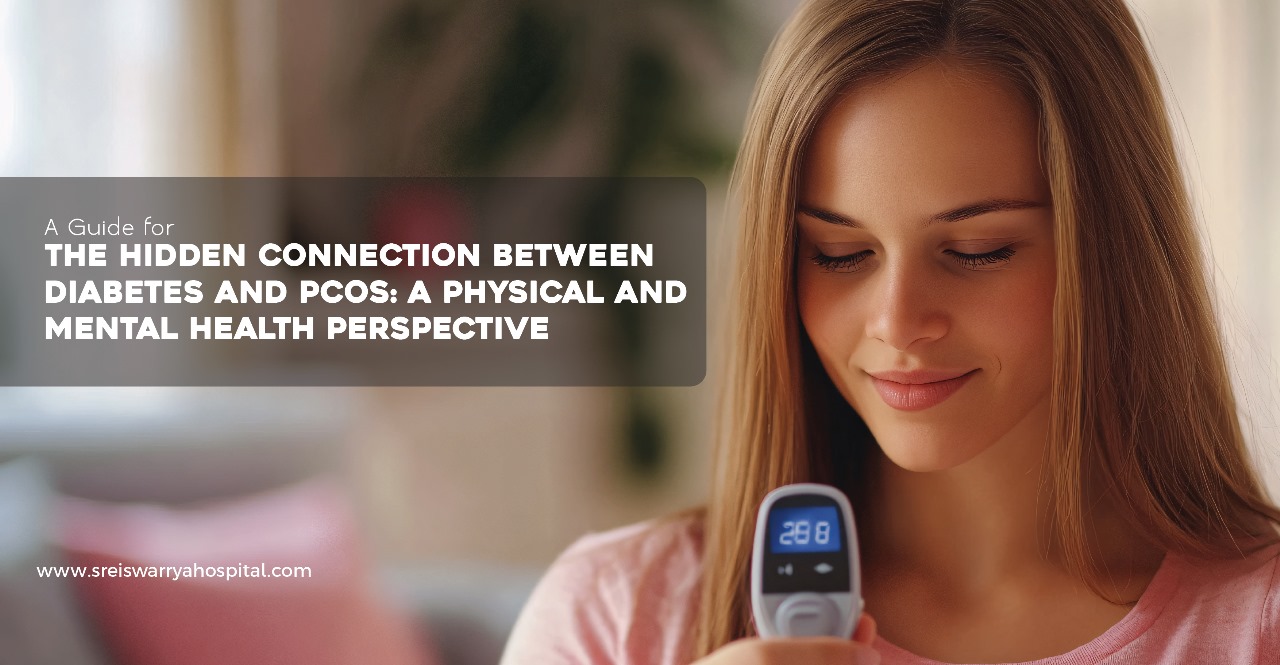
PCOS and Diabetes are two metabolic disorders that often go hand in hand. While they are commonly discussed separately, their interconnection has a significant impact on both physical and mental well-being. PCOS affects nearly 10% of women of reproductive age, and studies show that up to 50% of women with PCOS develop prediabetes or type 2 diabetes by the age of 40. But beyond these statistics, how do these conditions affect daily life, both physically and mentally?
PCOS is a hormonal disorder that leads to insulin resistance—a condition where the body’s cells do not respond effectively to insulin. This results in higher blood sugar levels, increasing the risk of diabetes. On the other hand, diabetes exacerbates PCOS symptoms, creating a challenging cycle that affects multiple aspects of physical health.
1. Weight Fluctuations and Metabolism IssuesBoth conditions contribute to unexplained weight gain, particularly around the abdomen. This is due to insulin resistance, which promotes fat storage and makes weight loss incredibly difficult. Obesity, in turn, worsens insulin resistance, leading to further metabolic imbalances.
2. Irregular Menstrual Cycles and Fertility ChallengesPCOS disrupts ovulation, causing irregular periods and difficulties in conception. When coupled with diabetes, high blood sugar levels can further interfere with reproductive hormones, increasing the risk of infertility and pregnancy complications.
3. Increased Risk of Heart Disease and Other ComplicationsWomen with both PCOS and diabetes have a higher likelihood of developing hypertension, high cholesterol, and cardiovascular disease at an earlier age than those without these conditions.
4. Skin and Hair ChangesExcess insulin can lead to dark patches on the skin (acanthosis nigricans), excessive hair growth (hirsutism), and even male-pattern baldness, which can significantly impact self-confidence.
The physical symptoms of PCOS and diabetes are only part of the struggle—both conditions take a heavy toll on mental well-being as well.
1. Anxiety and DepressionStudies suggest that women with PCOS are three times more likely to experience depression and anxiety. The hormonal imbalances, combined with the stress of managing a chronic condition, can lead to mood swings, fatigue, and feelings of hopelessness.
2. Body Image and Self-Esteem IssuesUnwanted weight gain, acne, and excessive hair growth can negatively affect self-esteem. Many women feel frustrated by their inability to lose weight despite efforts, which can lead to emotional distress and even eating disorders.
3. Fatigue and Brain FogBoth PCOS and diabetes contribute to chronic fatigue, making it difficult to focus, stay productive, or even complete daily tasks. High blood sugar levels can cause brain fog, affecting memory and concentration.
4. Social Withdrawal and IsolationThe physical changes and emotional struggles often cause women to withdraw from social situations, leading to feelings of loneliness and a lack of support.
While managing both conditions can be challenging, a holistic approach can significantly improve quality of life.
Diabetes and PCOS are deeply interconnected, affecting both physical health and mental well-being. Recognizing the link between these conditions is crucial for early intervention and holistic management. If you or someone you know is struggling with symptoms, seeking medical and emotional support can make a world of difference. With the right lifestyle changes and professional guidance, women with PCOS and diabetes can regain control over their health and well-being.